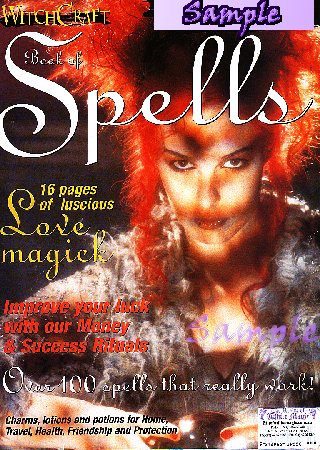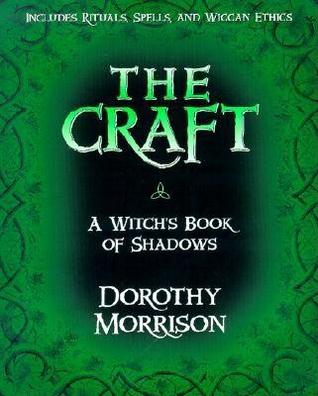Books On Witchcraft Details
Scot's book appeared entitled The Discoverie of Witchcraft, wherein the Lewde dealing of Witches and Witchmongers is notablie detected, in sixteen books … whereunto is added a Treatise upon the Nature and Substance of Spirits and Devils, 1584. At the end of the volume the printer gives his name as William Brome.
There are four dedications: to Sir Roger Manwood, chief baron of the exchequer; another to Scot's cousin, Sir Thomas Scot, a third jointly to John Coldwell, then dean of Rochester, and to William Redman, then Archdeacon of Canterbury; and a fourth "to the readers". Scott enumerates 212 authors whose works in Latin he had consulted, and twenty-three authors who wrote in English. The names in the first list include many Greek and Arabic writers; among those in the second are John Bale, John Foxe, Sir Thomas More, John Record, Barnabe Googe, Abraham Fleming, and William Lambarde. But Scot's information was not only from books. He had studied superstitions respecting witchcraft in courts of law in country districts, where the prosecution of witches was unceasing, and in village life, where the belief in witchcraft flourished in many forms.
He set himself to prove that the belief in witchcraft and magic was rejected by reason and by religion, and that spiritualistic manifestations were wilful impostures or illusions due to mental disturbance in the observers. His aim was to prevent the persecution of poor, aged, and simple persons, who were popularly credited with being witches. The maintenance of the superstition he blamed largely on the Roman Catholic Church, and he attacked writers including Jean Bodin (1530–1596), author of Démonomie des Sorciers (Paris, 1580), and Jacobus Sprenger, supposed joint-author of Malleus Maleficarum (Nuremberg, 1494).
Of Cornelius Agrippa and Johann Weyer, author of De Præstigiis Demonum (Basle, 1566), whose views he adopted, he spoke with respect. Scot did adopt contemporary superstition, in his references to medicine and astrology. He believed in the medicinal value of the unicorn's horn, and thought that precious stones owed their origin to the influence of the heavenly bodies. The book also narrates stories of strange phenomena in the context of religious convictions. The devil is related with such stories and his ability to absorb people's souls. The book also gives stories of magicians with supernatural powers performing in front of courts of kings.
Scot's book appeared entitled The Discoverie of Witchcraft, wherein the Lewde dealing of Witches and Witchmongers is notablie detected, in sixteen books … whereunto is added a Treatise upon the Nature and Substance of Spirits and Devils, 1584. At the end of the volume the printer gives his name as William Brome.
There are four dedications: to Sir Roger Manwood, chief baron of the exchequer; another to Scot's cousin, Sir Thomas Scot, a third jointly to John Coldwell, then dean of Rochester, and to William Redman, then Archdeacon of Canterbury; and a fourth "to the readers". Scott enumerates 212 authors whose works in Latin he had consulted, and twenty-three authors who wrote in English. The names in the first list include many Greek and Arabic writers; among those in the second are John Bale, John Foxe, Sir Thomas More, John Record, Barnabe Googe, Abraham Fleming, and William Lambarde. But Scot's information was not only from books. He had studied superstitions respecting witchcraft in courts of law in country districts, where the prosecution of witches was unceasing, and in village life, where the belief in witchcraft flourished in many forms.
He set himself to prove that the belief in witchcraft and magic was rejected by reason and by religion, and that spiritualistic manifestations were wilful impostures or illusions due to mental disturbance in the observers. His aim was to prevent the persecution of poor, aged, and simple persons, who were popularly credited with being witches. The maintenance of the superstition he blamed largely on the Roman Catholic Church, and he attacked writers including Jean Bodin (1530–1596), author of Démonomie des Sorciers (Paris, 1580), and Jacobus Sprenger, supposed joint-author of Malleus Maleficarum (Nuremberg, 1494).
Of Cornelius Agrippa and Johann Weyer, author of De Præstigiis Demonum (Basle, 1566), whose views he adopted, he spoke with respect. Scot did adopt contemporary superstition, in his references to medicine and astrology. He believed in the medicinal value of the unicorn's horn, and thought that precious stones owed their origin to the influence of the heavenly bodies. The book also narrates stories of strange phenomena in the context of religious convictions. The devil is related with such stories and his ability to absorb people's souls. The book also gives stories of magicians with supernatural powers performing in front of courts of kings.
Books On Witchcraft
Books On Witchcraft
Books On Witchcraft
Books On Witchcraft
Books On Witchcraft
Books On Witchcraft
Books On Witchcraft
Books On Witchcraft
Books On Witchcraft
Books On Witchcraft
Books On Witchcraft
Books On Witchcraft
Books On Witchcraft
Books On Witchcraft
Books On Witchcraft
Books On Witchcraft
Books On Witchcraft
Books On Witchcraft
Books On Witchcraft


















I was diagnosed with Parkinson’s disease four years ago. For over two years, I relied on Levodopa and several other medications, but unfortunately, the symptoms kept getting worse. The tremors became more noticeable, and my balance and mobility started to decline quickly. Last year, out of desperation and hope, I decided to try a herbal treatment program from NaturePath Herbal Clinic.
ReplyDeleteHonestly, I was skeptical at first, but within a few months of starting the treatment, I began to notice real changes. My movements became smoother, the tremors subsided, and I felt steadier on my feet. Incredibly, I also regained much of my energy and confidence. It’s been a life-changing experience I feel more like myself again, better than I’ve felt in years.If you or a loved one is struggling with Parkinson’s disease, I truly recommend looking into their natural approach. You can visit their website at [www .naturepathherbalclinic .com.] info@naturepathherbalclinic .com